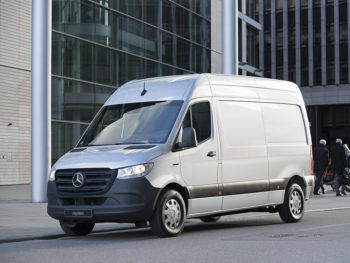The UK’s new light commercial vehicle (LCV) market grew for the second consecutive month in October – hitting its highest-ever level for the month.

The data from the Society of Motor Manufacturers and Traders (SMMT) shows some 28,753 vans, pickups and 4x4s were registered in the month – up 13.3%. This does compare to a weaker-than-usual October 2019 though, impacted by ongoing supply challenges around WLTP-approved vehicles.
October’s growth in demand was driven by the heavier end of the van market, as operators expand their fleets ahead of the Christmas season; registrations for vans weighing more than 2.5 and up to 3.5 tonnes were up 26.8% to 20,492 units.
Growth, albeit on a smaller scale, was also seen in registrations for smaller vans weighing less than or equal to 2.0 tonnes and medium vans weighing more than 2.0 tonnes and up to 2.5 tonnes, which both grew 1.6% and 2.9% respectively. However, 4x4s and pickups both saw a dip in demand, with registrations down 33.6% and 31.8% respectively – this is seen in part as a reflection of the difficulties faced by the agriculture sector.
The SMMT said October’s rise was a combination of pent-up demand from the UK’s first lockdown, growth in the construction sector and new fleet orders coming in ahead of an anticipated busy Christmas period.
But the year-to-date market is yet to make up a 75,000-unit shortfall; registrations for the first 10 months are down 24.1%.
And now a second lockdown for England raises further challenges.
SMMT chief executive Mike Hawes said: “A second month of growth for the van market is testament to the resilience of the sector and society’s reliance on it amidst a difficult year. However, with a second nationwide lockdown ahead, future performance is difficult to gauge. Industries such as construction and logistics will keep the country moving as they did earlier in the year, but continued uncertainty and closures across retail and hospitality will have an effect on all businesses, and consequently commercial vehicle demand.”
But the prospect of a no-deal Brexit also remains a core challenge.
Hawes continued: “Now more than ever, industry needs the assurance of a tariff-free deal with the EU to ensure production and delivery of these essential vehicles continues with no interruption in the difficult months ahead.”

